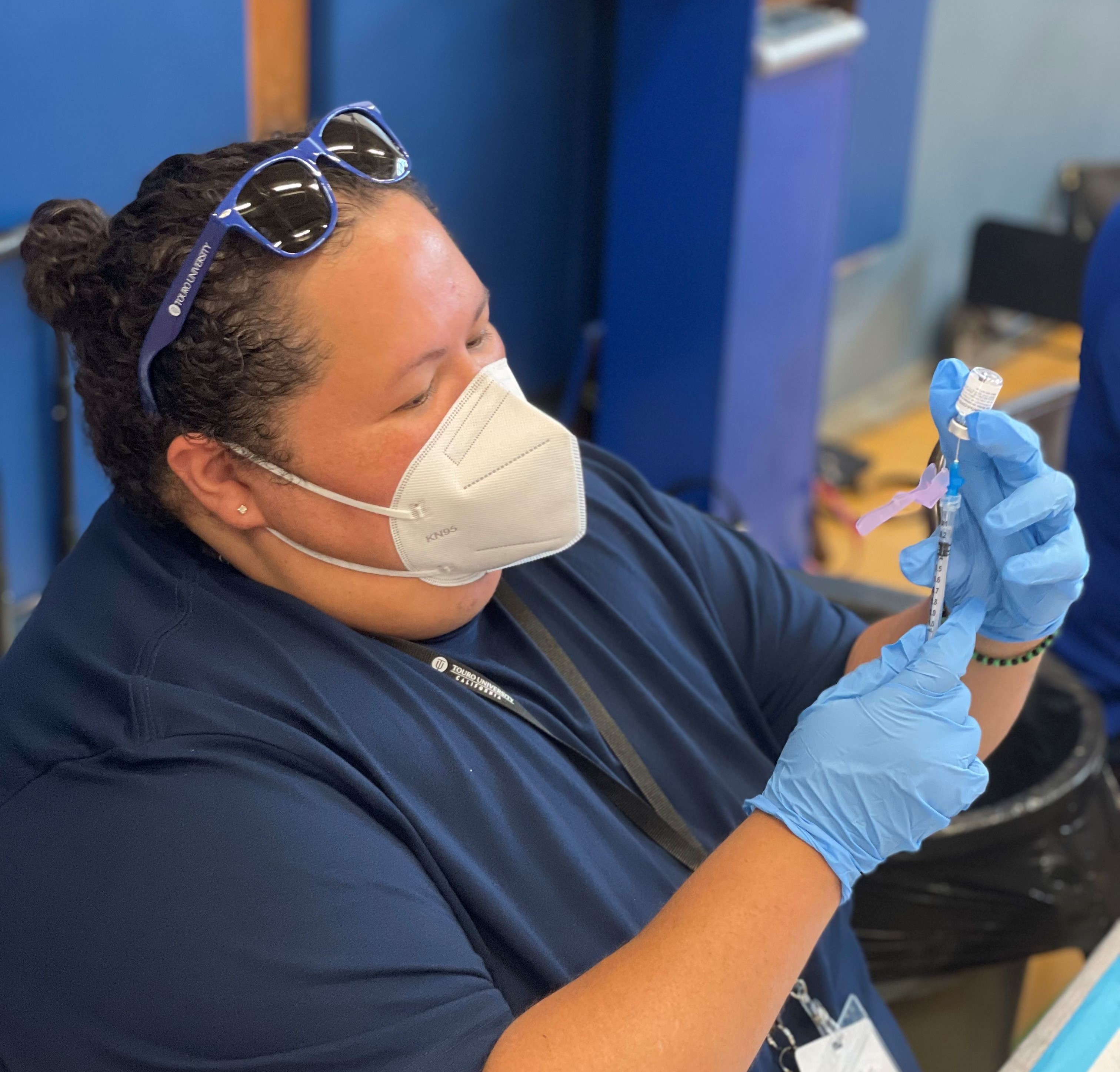Interprofessional Clinic Educates and Vaccinates
Leading with compassion, Dr. Fatima Hernandez inspires interdisciplinary health care excellence, fostering collaboration among students from various health disciplines.

Dr. Fatima Hernandez, Clinical Pharmacist Project Manager for Touro CARES MVP (Mobile Vaccination Program), understands how essential vaccines can be.
“I almost died from severe COVID before the vaccine was available,” says Hernandez. “I had COVID a second time, three years later. I was terrified that I would end up in the hospital again, but since I was fully vaccinated, all the symptoms were mild.”
When Touro CARES MVP began in May of 2021, Hernandez, a 2020 graduate of Touro’s College of Pharmacy, was tapped to lead the program. The severe COVID experience motivated Hernandez to lead the program and make vaccinations available to anyone who needed them. The program supported the Solano County Fairgrounds mass vaccination site. It was there that Touro volunteer students, staff, and faculty would work the weekend clinics drawing vaccines, consulting patients with special medical situations, and checking in patients.
Since then, Touro CARES MVP has held over 308 clinics across the county, including schools, food pantries, parking lots, and parks. This mobile initiative collaborates seamlessly with other Touro programs like the Mobile Diabetes Education Center, Drug Safe Solano, Student Run Free Clinic, and Solano Connex, ensuring a comprehensive approach to community health.
Beyond administering over 8,000 COVID-19 vaccines, 1,000 influenza vaccines, and 400 Tdap vaccines, the program offers blood pressure screenings, diabetes screenings, and medication reviews. This multi-faceted approach aims to improve community wellness by addressing broader health concerns.
While it supports the local population, it also serves as an important interprofessional educational opportunity for Touro students. Touro CARES MVP allows students in health programs to learn vaccination skills, handling vials, preparing vaccines, and proper administration techniques. The program also creates a space for skills and knowledge sharing.
“At the clinics, the student doctors teach others how to handle emergency situations, while pharmacy, physician assistant, and nursing students teach proper protocols,” says Hernandez, who is supported by Solano County. “All the students get to do more than intake and get a chance to learn things beyond the classroom.”
The initiative fosters teamwork, with students from different colleges learning from one another and gaining a deeper appreciation for the skills that diverse healthcare roles bring. Additionally, Hernandez emphasizes the importance of communication skills, teaching students not only how to administer vaccines but also how to engage with patients effectively with compassion.
Students learn to help people seeking vaccinations but are also sympathetic to the limitations some may encounter. Many have difficulty with the English language, and some are not able to read or write.
“It’s been gratifying to see how hard our students try to make sure that our guests do not feel embarrassed to ask for help!” says Hernandez, who often hears students and volunteers asking people if they need help filling out the forms. “We want people to know that if they come to our clinics, we will help them; if we can’t, we’ll refer them to someone who can. We try our best to be sympathetic about what they’re going through and go above and beyond.”
